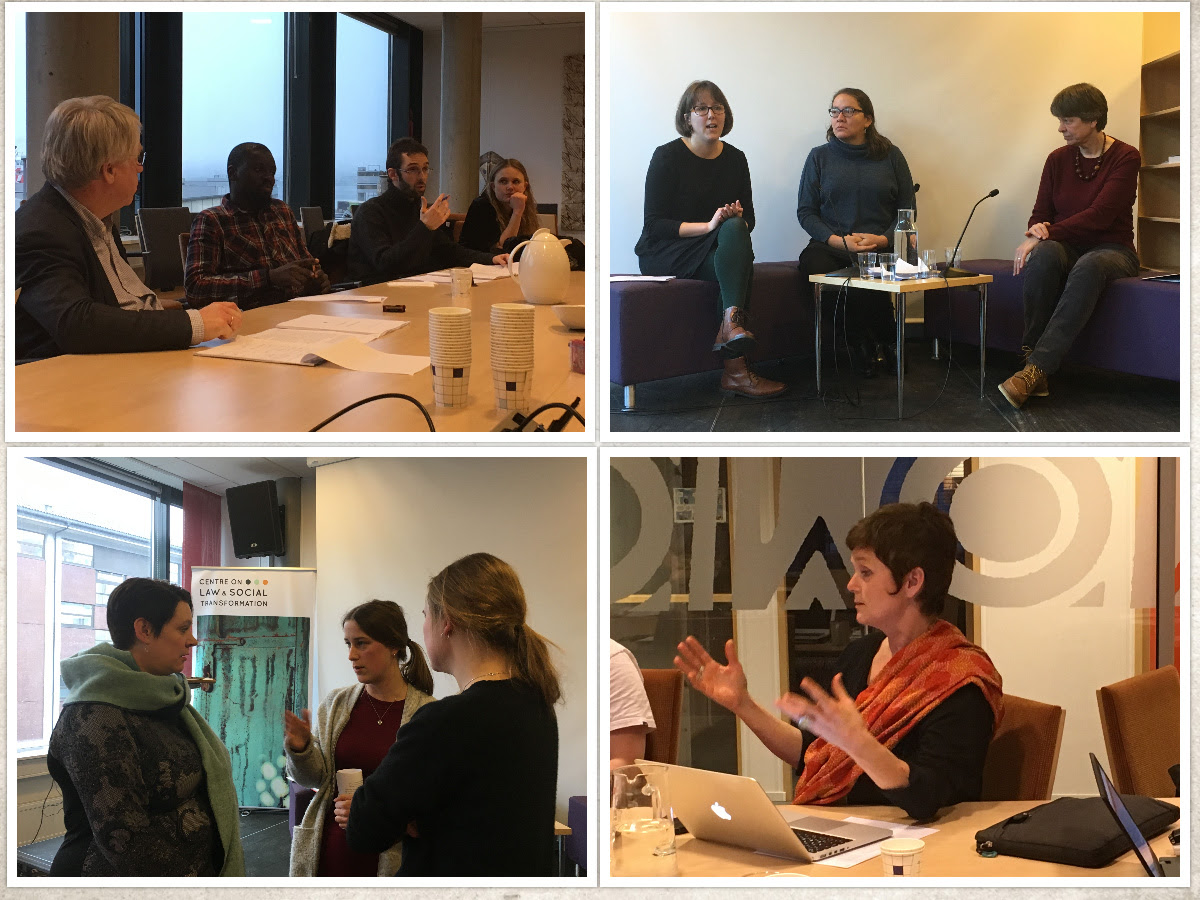For the third year we are organizing our LawTransform Master’ s Week (10-12 February 2020) and we would be really happy if you could take part in this great event!
LawTransform Master’ s Week is a week with public seminars where former master students, who are part of the centre’s student group, have the opportunity to present their master’s theses. There is also a closed session for those who are still developing their thesis. We see this as an opportunity to give visibility to the relevant academic work they do and at the same time promote the center as a nice place to be for other students.
Public seminars:
10 Feb., 12:00-13:00 – The Quality of Life Agenda in Norway. Aurora Telle (University of Copenhagen, Department of Political Science). Aurora’s presentation will be followed by a discussion with Thor Olav Iversen (UiB, Centre for the Study of the Sciences and the Humanities, SVT) moderated by Siri Gloppen (UiB/Comparative Politics, CMI-UIB LawTransform director).
Aurora’s thesis explores the historical and intellectual roots of the contemporary quality of life agenda in Norway. Political interest in using quality of life to assess societal progress has risen dramatically over the past decade. Yet despite being labelled the happiest region in the world, Scandinavian authorities were long opposed to using new quality of life measures as a guide to public policy. This was true until 2018, when an unanimous Norwegian parliament decided to introduce new quality of life indicators. How welfare is measured will affect how welfare is made. But while indicators hold an increasingly important role in the political sphere, their use and creation is rarely transparent or public.
12 Feb., 8:30-9:30 – Bits Before Bombs: Cyber-attack as a Breach of Article 2(4) of the UN Charter. Oda Ringstad (UiB, Faculty of Law) will present her thesis which questions if, and when, cyber-attacks become “use of force”, as stipulated in the UN Charter. Oda’s presentation will be followed by a discussion with Malcolm Langford (UiO/Law, CMI-UiB LawTransform co-director) moderated by Siri Gloppen (UiB/Comparative Politics, CMI-UIB LawTransform director).
UN Charter was created as a result of the Second World War, and thus the prohibition on use of force was directed at classic and weapons known at the time. The breakthrough of the internet changed the rules for many industries, and war is no exception. With the development of cyber combat, far from the traditional concept of conventional weapons and explosives, cyberspace has become a new domain for military operations. Today, wars are fought at sea, on land, in the air, across space and in the emerging battleground of cyberspace. In modern society, we are heavily reliant on technology and the increased digitalisation of society means that vulnerability to hateful intrusions has also grown. Cyber-attacks can be a serious threat to national security, and as a result, States and academics are beginning to treat cyber-attacks as acts of war. However, cyber combat does not look like the historic perception of what constitutes war, and this creates an issue in regard to the regulations monitoring armed conflicts. So far, no State has claimed to be targeted with “use of force” or be under “armed attack” of the cyber forces from another State.
Read more about Oda Ringstad’s master thesis here: http://hdl.handle.net/

